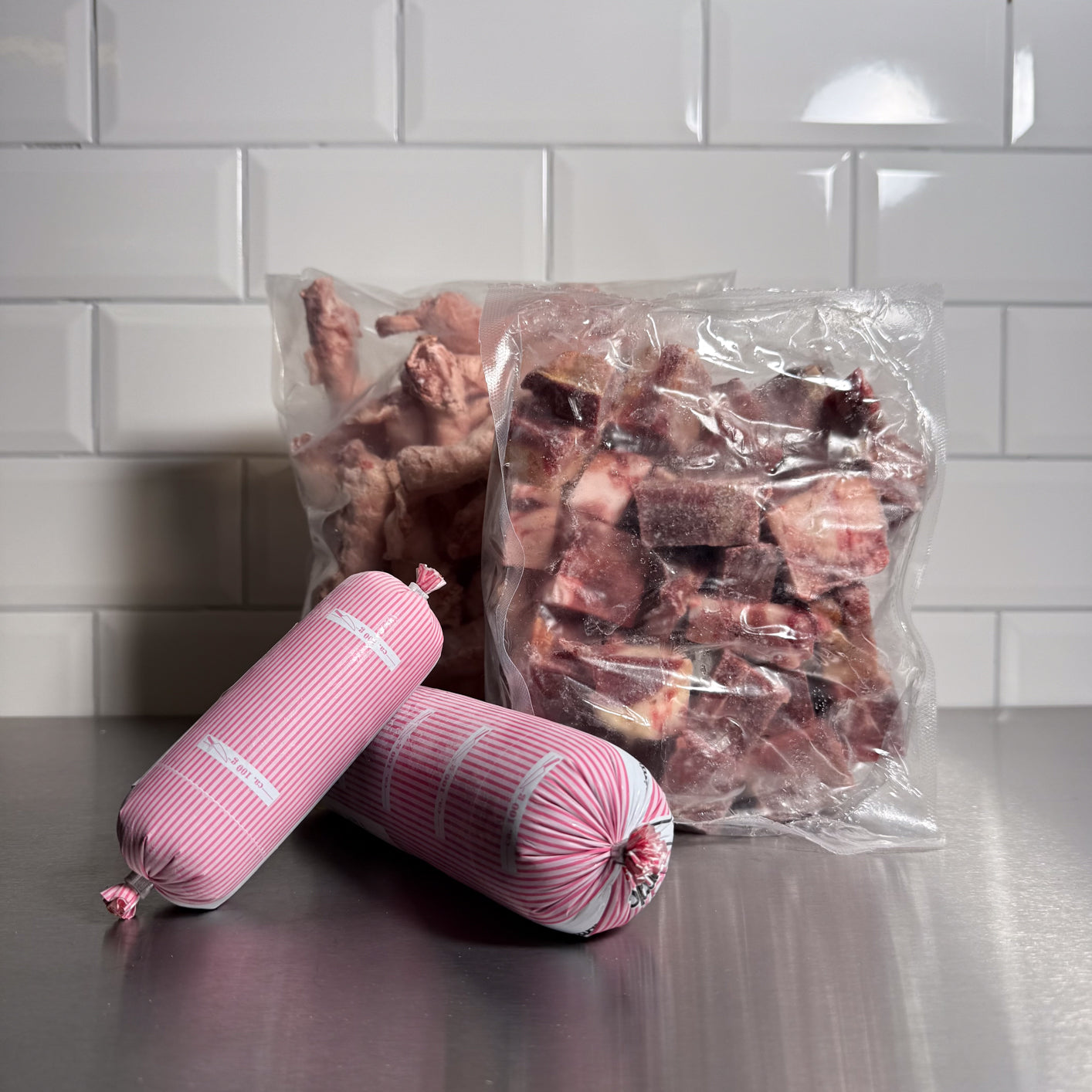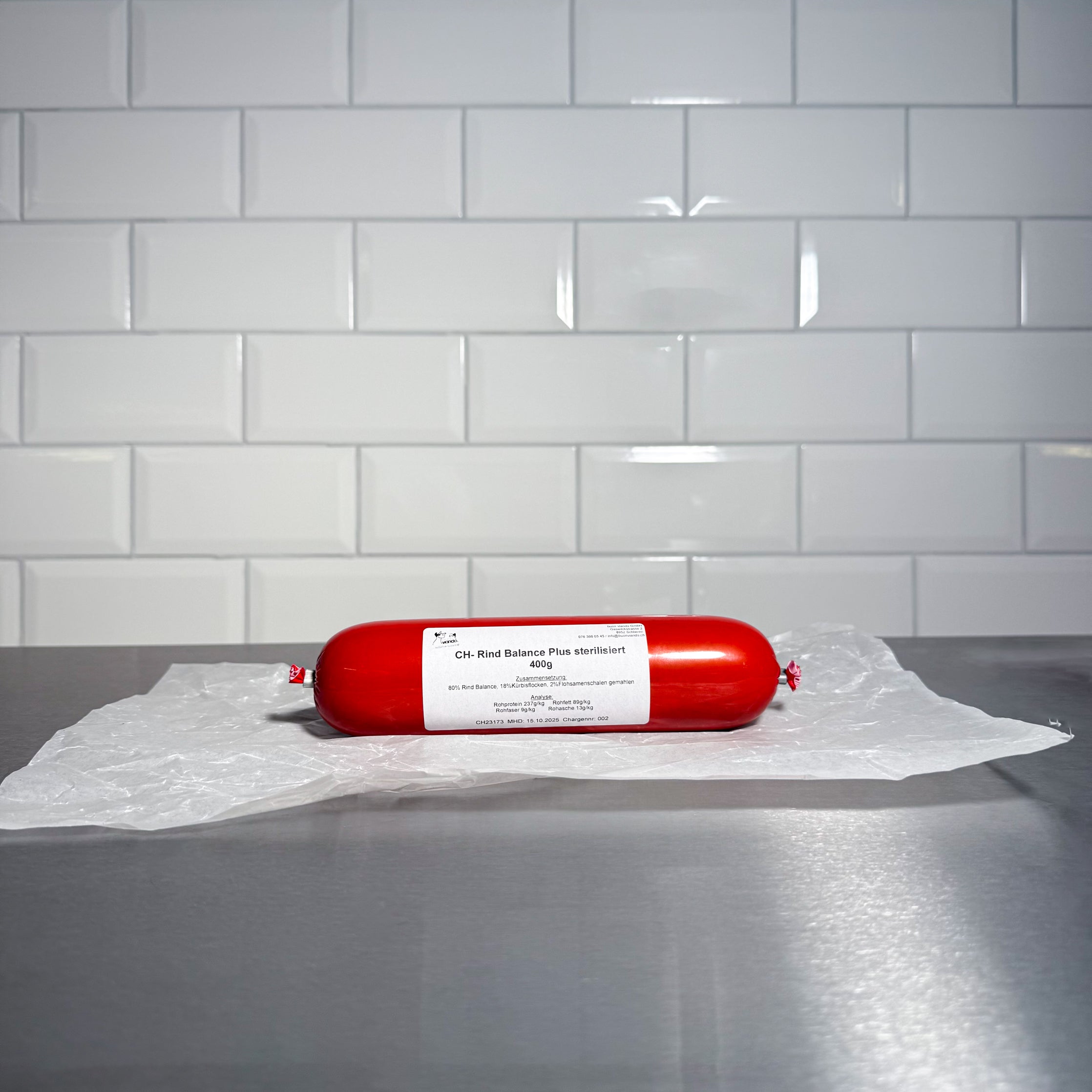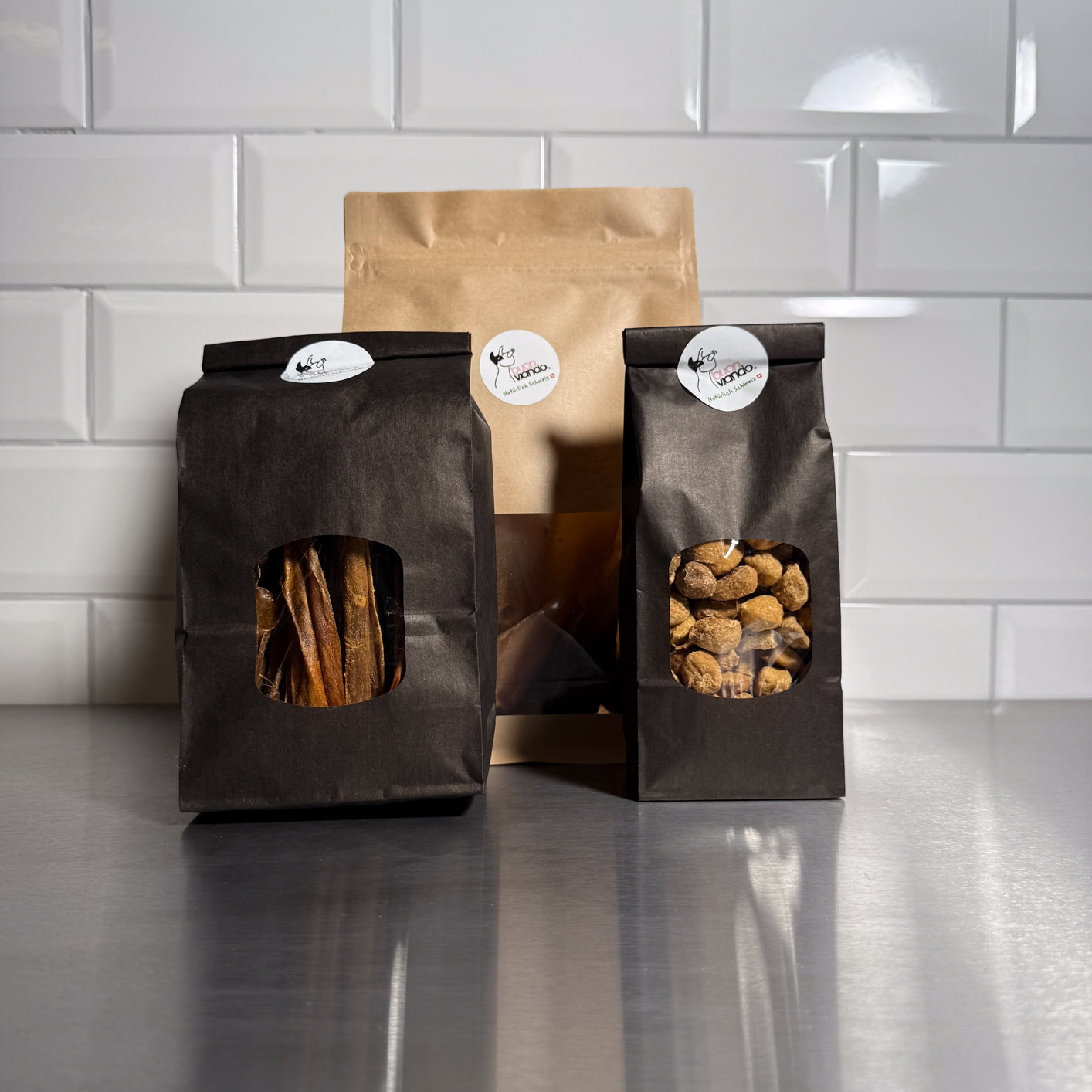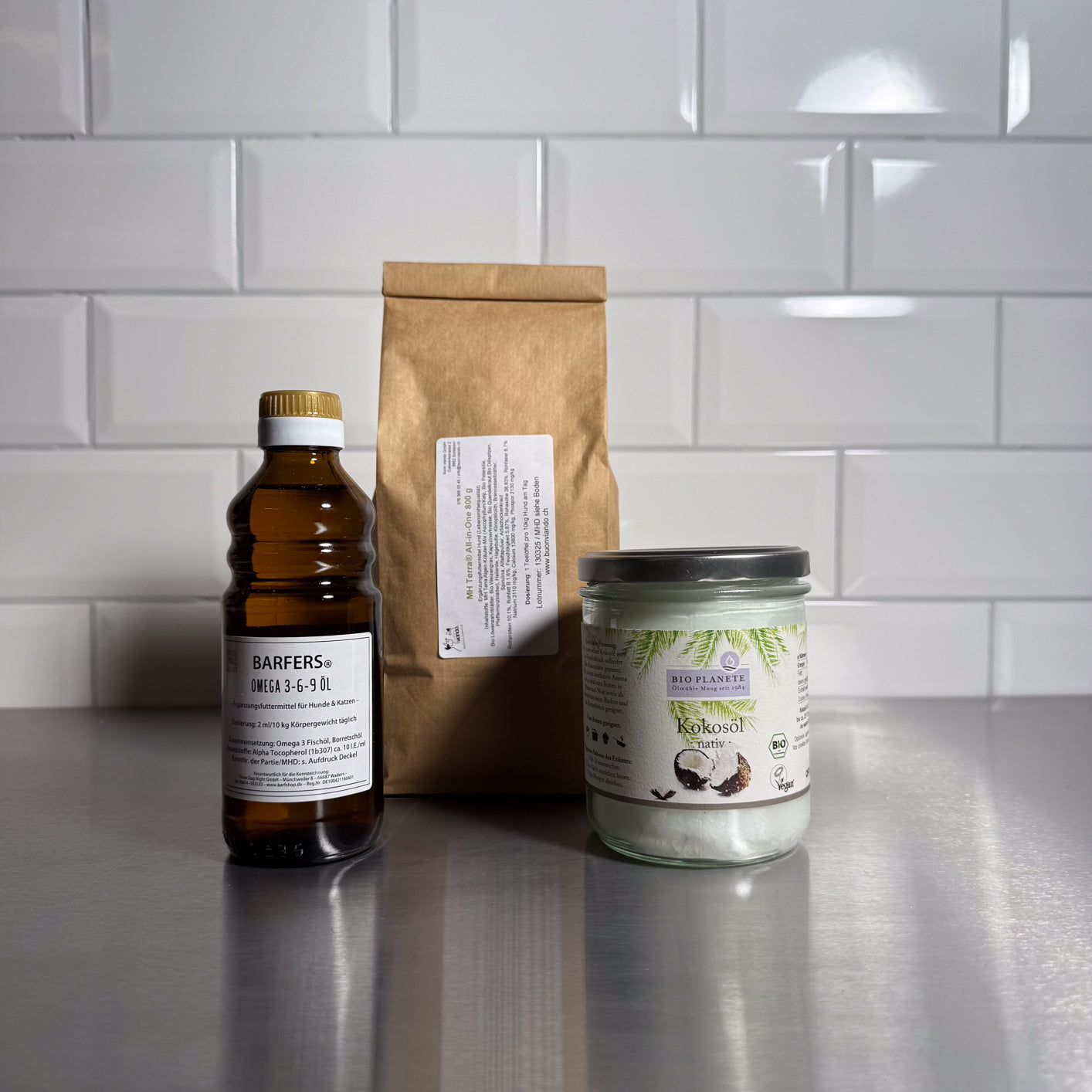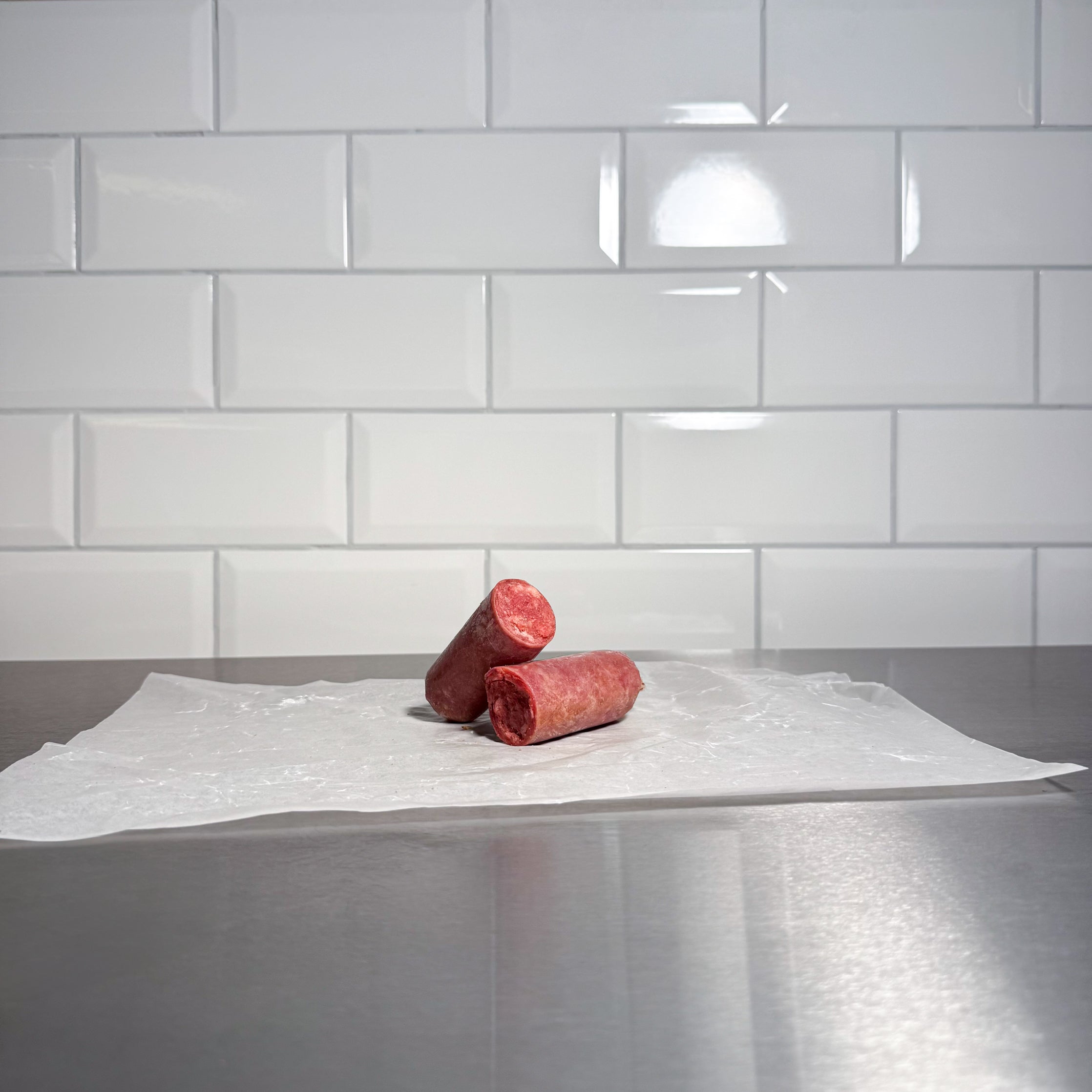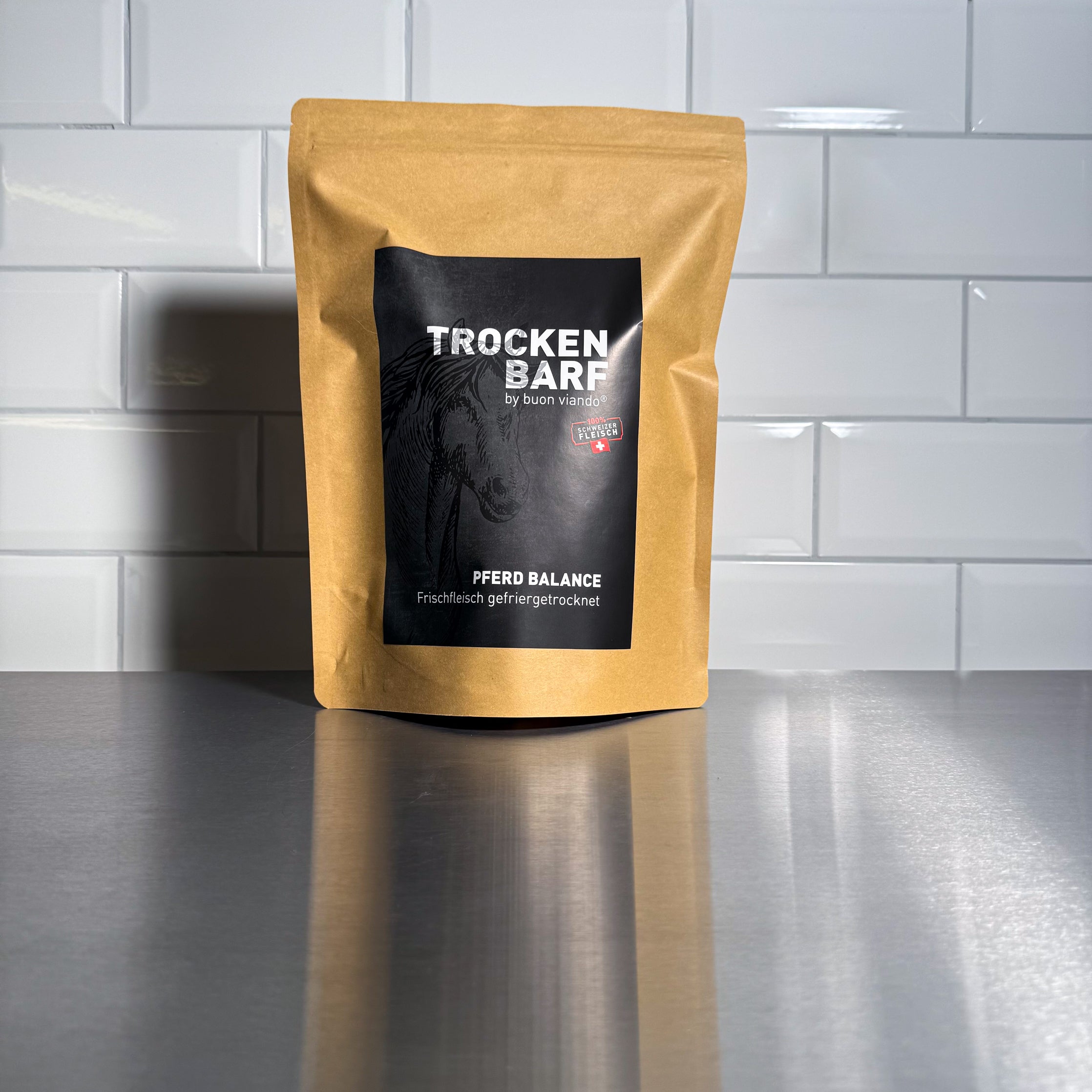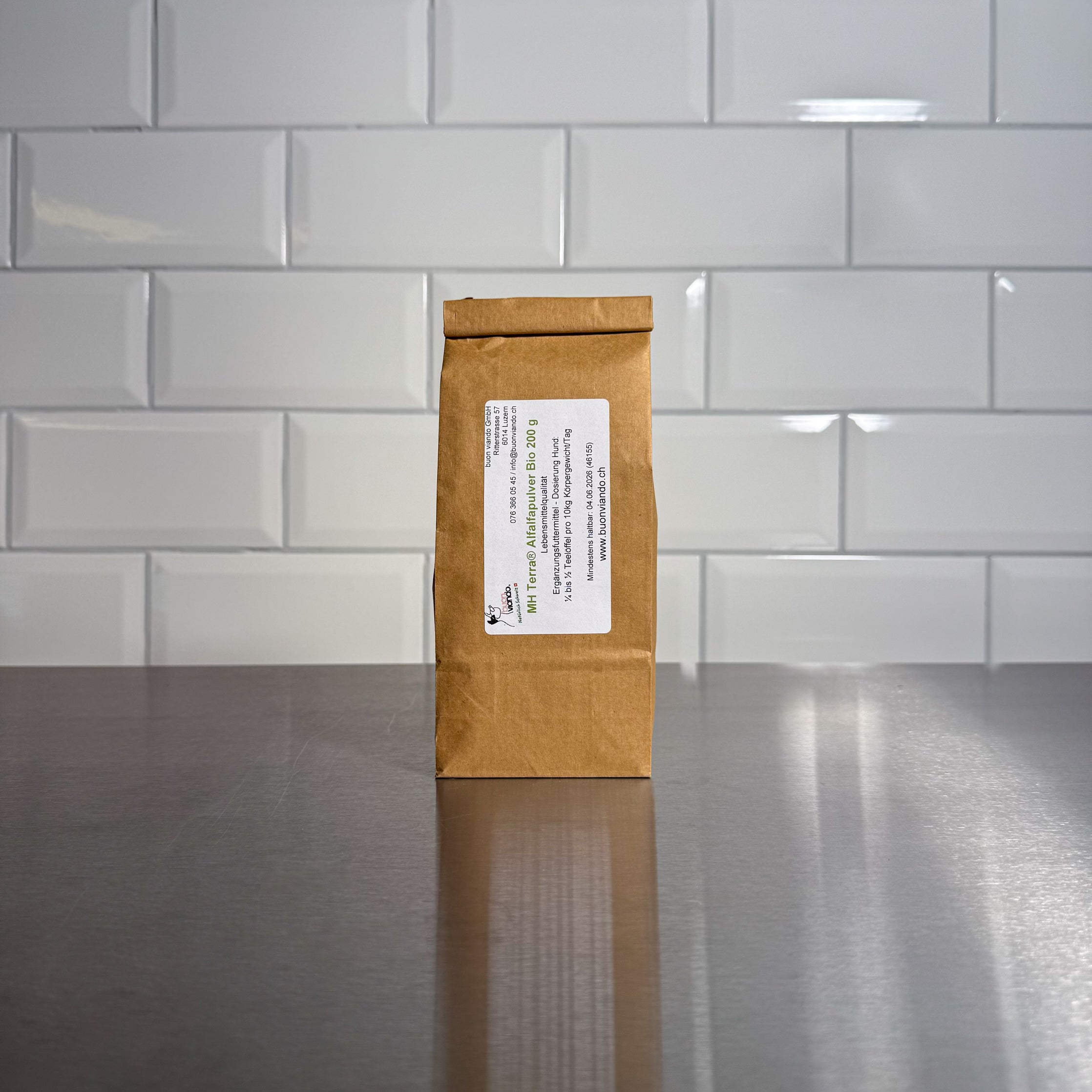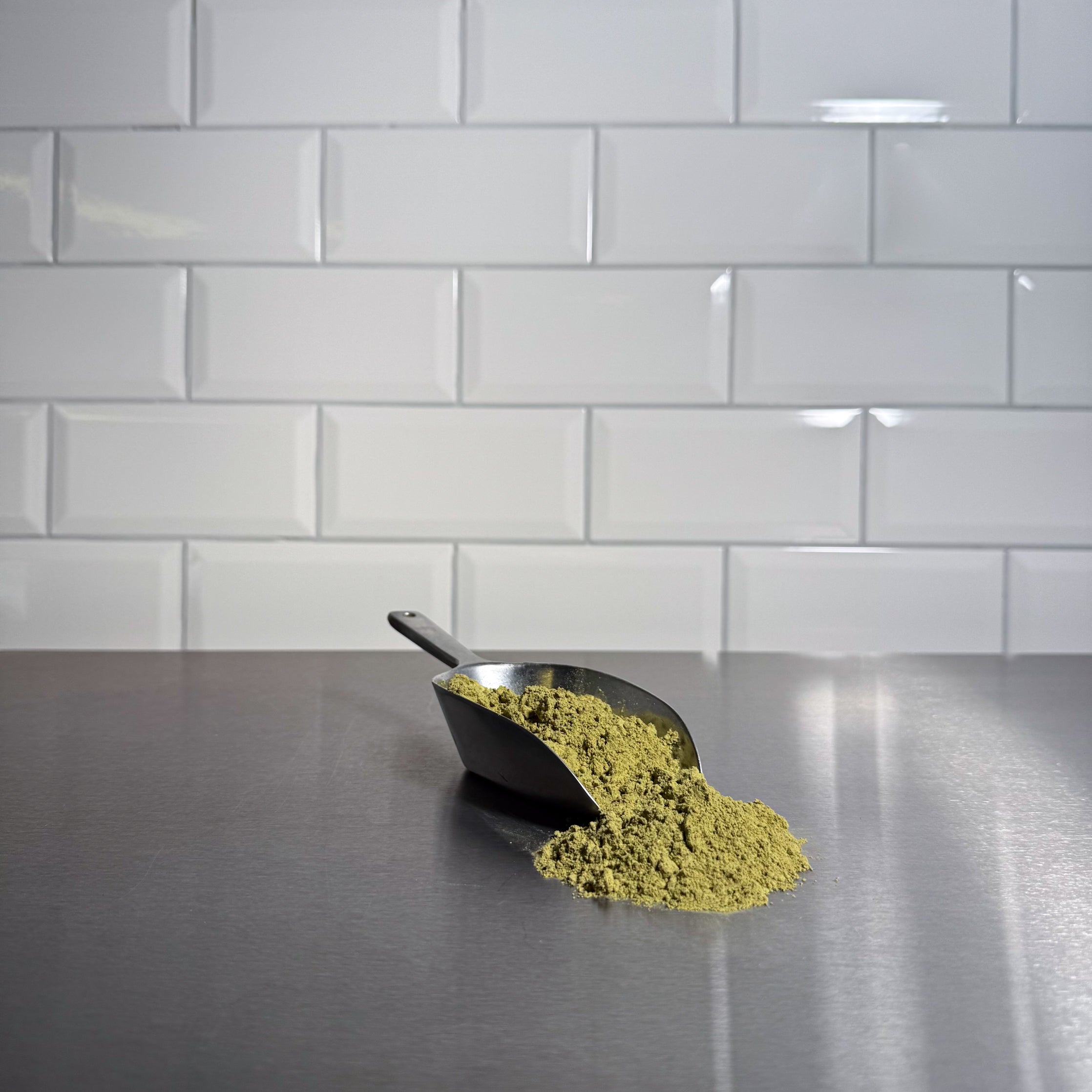What is alfalfa, actually?
Alfalfa belongs to the legume family and has been used as a fodder plant for centuries – primarily for horses and livestock. But alfalfa also has a place in naturopathy, as the plant is rich in vital nutrients and contains, among other things, chlorophyll, calcium, magnesium, iron, vitamins A, C, and E, and secondary plant substances such as isoflavones and saponins.
In powder form, alfalfa can be wonderfully mixed into food as a supplement – provided it is of good quality and free of pesticides.
Why is alfalfa good for dogs and cats?
The effect of alfalfa powder is gentle but quite diverse. Here's a brief overview of its potential benefits:
- Support of the musculoskeletal system
- Alkaline Boost for the Body
- Metabolism & Digestion
- General Strengthening & Vitality
And what about cats?
Cats and greens – that's often a tricky thing. But alfalfa powder is actually well tolerated by many cats. As always, it's important to introduce it slowly, not to overdose, and to observe. Some cats don't immediately like the slightly bitter taste – a little meat broth or salmon oil as a "transport aid" can work wonders.
Is there anything else to keep in mind?
As with all herbs, less is more. Alfalfa naturally contains plant hormones (phytoestrogens), which, in very large quantities, could affect hormone levels. Therefore, it is recommended to use it as a course of treatment – especially in unneutered animals or animals with hormonal disorders.
Alfalfa powder should ideally not be given to pregnant or lactating bitches/cats unless consulted by a specialist.
Conclusion: A green all-rounder with great potential
Alfalfa powder is not a miracle cure – but it is a wonderful, natural addition to daily feeding. Whether for strengthening in old age, as a springtime cure, or simply as a quick nutrient boost: alfalfa can give your bowl an extra dose of plant power. And let's be honest – a little more "green" is good for all of us, right?

